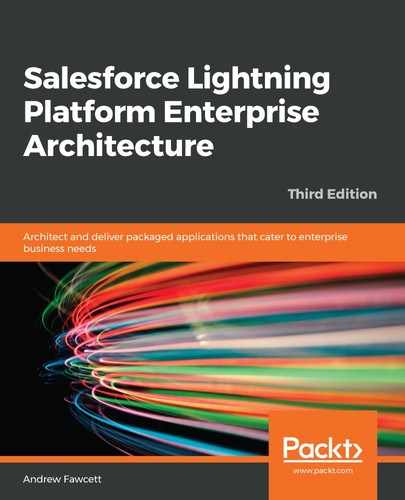A package is a container that holds your application components, such as Custom Objects, Apex code, Apex Triggers, Visualforce pages, Lightning Components, and so on. This makes up your application. While there are other ways to move components between Salesforce orgs, a package provides a container that you can use for your entire application or to deliver optional features by leveraging so-called extension packages.
There are two types of packages—managed and unlocked. Unlocked packages also result in the installation of components into another org; however, they can be readily modified or even deleted by the administrator of that org. While they can be used for upgrades, changes made in an installation org will be overwritten. Given these attributes, they are not particularly ideal from a support perspective. Moreover, the Apex code that you write is also visible for all to see, so your intellectual property is at risk.
